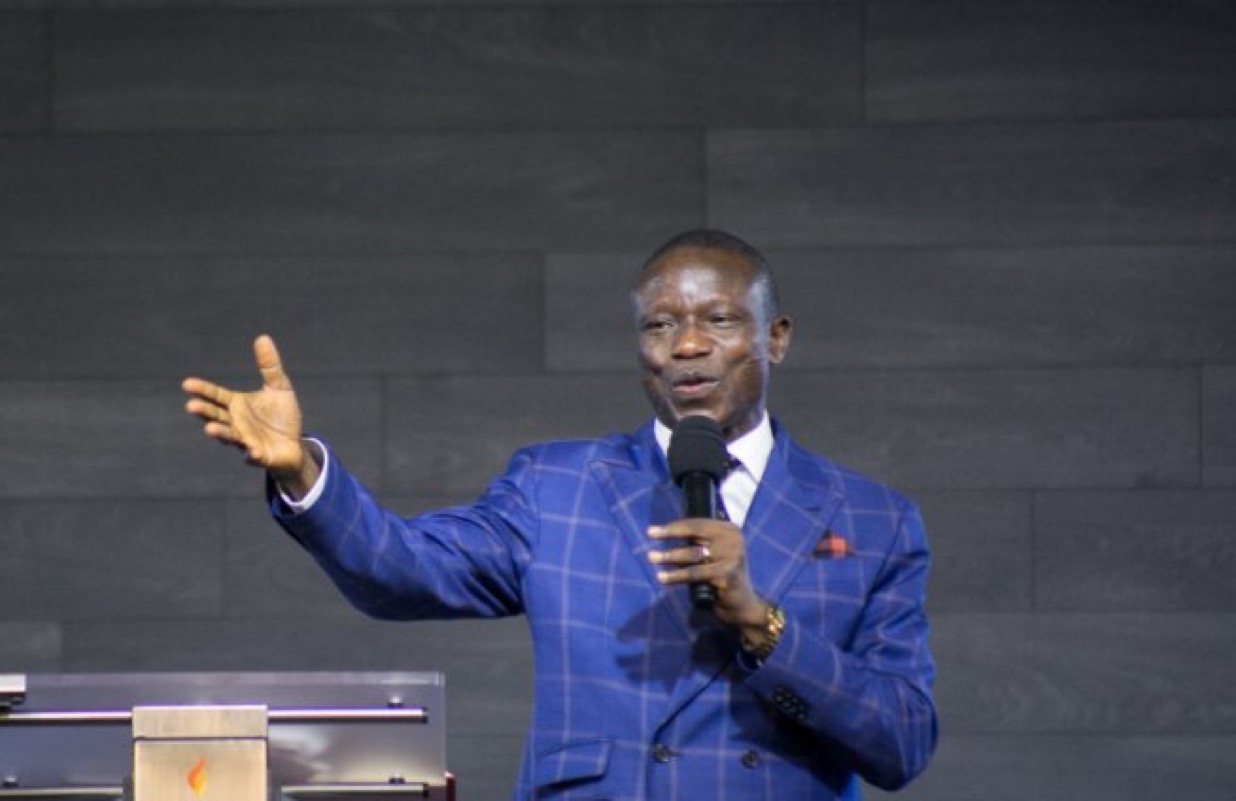
“Genocide Exists in Nigeria, But It’s Not About Christians Alone” — PFN President, Wale Oke Speaks Truth to Power

The President of the Pentecostal Fellowship of Nigeria (PFN), Bishop Wale Oke, has stirred national conversation with his bold and deeply emotional statement declaring that genocide exists in Nigeria — but not solely against Christians. His words, made during a recent media briefing, have ignited debate across religious and political lines, challenging Nigerians to face the uncomfortable realities of violence, ethnic cleansing, and mass killings that have plagued the nation for decades.
Bishop Oke, who has been one of the most respected voices in the Christian community, lamented that the country has been bleeding for too long, not from isolated religious conflicts, but from systemic violence that targets entire communities — Muslim, Christian, and traditionalist alike. He insisted that the tragedy of Nigeria is not merely about faith-based persecution but about a government and social structure that has failed to protect human life, regardless of tribe or religion. “Genocide exists in Nigeria, and it’s not just about Christians,” Oke said solemnly. “Entire villages have been wiped out, children killed, women violated, men slaughtered. Whether they are Christians in Benue or Muslims in Zamfara, the blood of Nigerians is being shed daily.”
His statement came against the backdrop of renewed violence in Plateau, Benue, and Southern Kaduna, where reports of attacks by armed groups have once again left dozens dead and thousands displaced. Oke’s remarks were a call for unity — a reminder that the pain of one region cannot be ignored by another simply because of religious differences. “We cannot continue to act as if it’s someone else’s problem,” he continued. “When a Muslim is killed unjustly, a part of Nigeria dies. When a Christian community is burnt down, a part of Nigeria dies. And when the innocent poor, who have no religion but survival, are massacred, the soul of Nigeria dies again.”
For many years, discussions about violence in Nigeria have been framed through religious and ethnic lenses. The Middle Belt, for instance, has witnessed recurring clashes between herders and farmers, often described as Christian-Muslim conflict. However, as Oke emphasized, the issue is far more complex than faith. It is a crisis born from decades of neglect, injustice, and competition over resources — a failure of leadership that allows human life to be treated cheaply. He condemned the growing trend of selective outrage, where killings only draw attention when victims belong to one’s religious or ethnic group.
Political analysts have hailed Oke’s statement as a necessary dose of truth in a nation often divided by propaganda. By using the word “genocide,” the PFN President underscored the scale of the tragedy, drawing global attention to a pattern of systematic violence that meets the international definition of mass atrocities. From the massacres in Zamfara and Sokoto to the killings in Benue and Plateau, and even the relentless attacks in the Southeast, Nigeria’s landscape has been marked by bloodshed and displacement.
“What we are witnessing is not random violence,” Oke said. “It’s organized, targeted, and persistent. When communities are destroyed repeatedly and nothing is done to stop it, that is genocide.” His words were a direct challenge to the federal government, which has often downplayed or politicized reports of ethnic and religious killings.
Bishop Oke’s speech also highlighted the moral responsibility of the Church. He admitted that religious leaders must do more than condemn violence; they must become advocates for peace and justice that transcends denominational boundaries. “The Church must speak not only when Christians are attacked but when any Nigerian is attacked. Our silence in the face of injustice, no matter who the victim is, makes us complicit,” he stated. He urged imams, pastors, and traditional leaders to unite their voices in demanding protection for every Nigerian citizen.
The PFN President’s remarks have drawn both praise and criticism. Some Christians applauded his honesty, saying his words reflect the true heart of Christ — compassion for all humanity. Others accused him of watering down the realities of Christian persecution, arguing that Christians have been disproportionately targeted in many parts of the North. But Oke responded to such sentiments by reminding believers that truth must not be sacrificed for emotion. “Acknowledging the pain of others does not erase our own. It amplifies our shared humanity,” he said.
Nigeria’s history is filled with bloody chapters — from the Biafra war to the Jos crises, from Boko Haram’s insurgency to banditry in the Northwest. Each wave of violence has carried the same haunting pattern: ordinary people paying with their lives while leaders trade blame. Oke’s comments force Nigerians to confront this uncomfortable continuity. He warned that unless the government acts decisively to stop the bloodshed, the country risks sliding into irreversible chaos. “When violence becomes normal, when we bury victims without demanding justice, we are already lost as a nation,” he said.
Observers note that Oke’s statement may mark a turning point in how faith-based organizations respond to national crises. For years, the PFN has been vocal about Christian persecution, especially in the North. But Oke’s latest remarks represent a shift toward a broader humanitarian vision — one that sees every Nigerian life as sacred, regardless of faith. His message aligns with the growing chorus of voices calling for a national truth and reconciliation process to address the underlying causes of violence — poverty, corruption, impunity, and ethnic mistrust.
Social media reactions to Oke’s statement were swift and emotional. Many Nigerians shared clips of his speech with comments like “Finally, someone said it!” and “This is the unity message we’ve been waiting for.” Others expressed skepticism, saying words alone won’t change anything unless leaders act. But even critics admitted that the PFN President had sparked an important conversation — one that forces Nigerians to rethink how they see one another.
In a time when the nation feels increasingly divided, Oke’s call for empathy offers a glimmer of hope. He ended his address with a powerful reminder that resonated far beyond the walls of the church: “There are no Christian corpses or Muslim corpses — only human corpses. The ground of Nigeria is soaked with innocent blood, and until we value every life equally, peace will remain a distant dream.”
His words, simple yet profound, speak to the very heart of Nigeria’s crisis — a moral failure that goes beyond religion. Bishop Wale Oke has done more than point out the problem; he has dared Nigerians to look in the mirror and confront their collective indifference. The question now is whether those in power, and indeed the citizens themselves, will listen.
In a country where mass killings often trend for a day and disappear the next, Oke’s voice stands as a prophetic warning — and perhaps, a final plea — that the time for selective compassion is over. Genocide exists in Nigeria, yes, but until Nigerians acknowledge that it affects everyone, no one will truly be safe.


